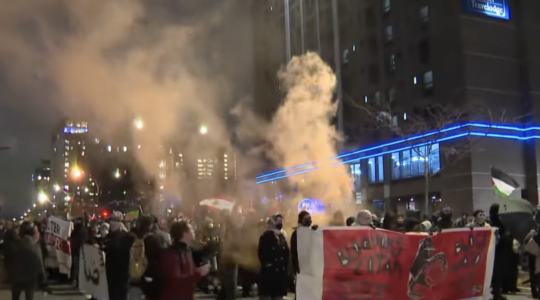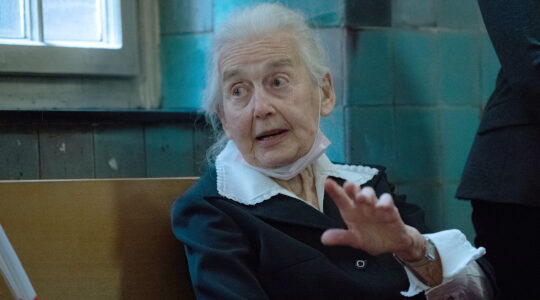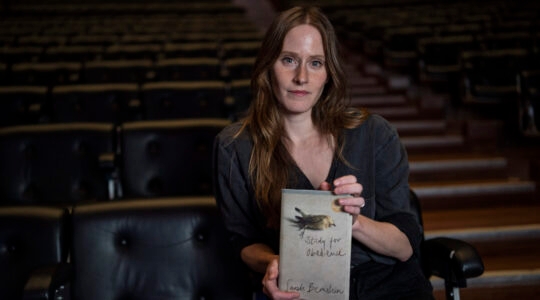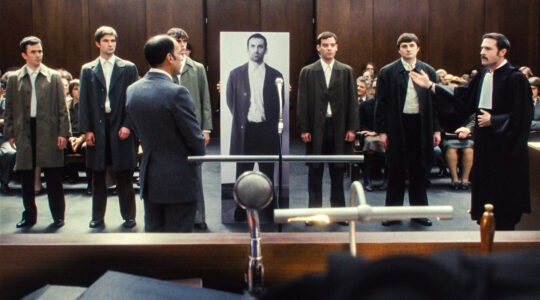(JTA) – Jews in Scotland are feeling greater unease living in their country over the past few years, according to a report by the main Jewish umbrella group there.
In the report released Wednesday by the Scottish Council of Jewish communities, or ScoJeC, nearly one-third of the 300 respondents to a survey filled out after 2014 explicitly talked about a heightened level of anxiety, discomfort or vulnerability, despite not having been directly asked. Approximately one in six respondents told ScoJeC they now keep their Jewish identity secret, as opposed to a handful in a survey conducted in 2012-13.
ScoJeC launched the follow-up survey following a major rise in anti-Semitic incidents reported in Scotland in 2014 in connection with Israel’s war with Hamas in Gaza.
The organization called the latest report “sobering” and “very perturbing.”
“So many Jewish people told us that they were feeling uncomfortable and anxious and even afraid to go about their day-to-day activities, that the Scottish Government was concerned enough to fund a further study of how the experience of Being Jewish in Scotland had changed,” ScoJeC wrote.
“Sadly, this second inquiry was entirely dominated by expressions of insecurity and alienation. Most tellingly, the person who said in 2012 that Scotland is a ‘darn good place to be a Jew’ told us less than two years later that ‘I feel alienated, and no longer Scottish first then Jewish. I feel Jewish only.’”
Scotland is a country in the United Kingdom, which has its own parliament, educational autonomy and government. It is, however, not an independent nation, although the ruling Scottish National Party supports independence. Many SNP politicians and voters back Palestinian national ambitions, which some observers say many Scots see as parallel to their own people’s aspirations.
Approximately 17 percent of respondents mentioned the raising of Palestinian flags by some local authorities in 2014 as having contributed to their general sense of unease.
Thirteen percent told ScoJeC they did not believe in the impartiality of public authorities, including the police, when it came to complaints involving anti-Semitism. Several respondents said that for the first time, they were considering leaving Scotland, and 11 percent said they have difficulty finding anything good to say about being Jewish in Scotland.
“Nonetheless, it is reassuring that the Scottish Government has listened to these findings, and is taking the concerns of our respondents seriously,” ScoJeC director Ephraim Borowski wrote in the report.
The government has increased financial support for SCoJeC’s work “to ensure that Jewish people in Scotland feel safe, secure, and supported,” he added.
Borowski also wrote that First Minister Nicola Sturgeon, who has led the Scottish government since 2014, “has made good her promise of greater engagement with members of the Jewish community as we work together to eradicate anti-Semitism and intolerance in this country.”

Help ensure Jewish news remains accessible to all. Your donation to the Jewish Telegraphic Agency powers the trusted journalism that has connected Jewish communities worldwide for more than 100 years. With your help, JTA can continue to deliver vital news and insights. Donate today.





